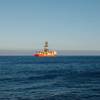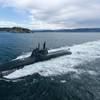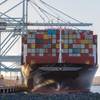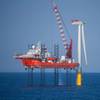Spain Accedes to IMO Fishing Vessel Treaty
Spain has become the latest country to accede to the International Maritime Organization’s Cape Town Agreement on fishing vessel safety, significantly boosting the number of vessels needed for entry into force.
The entry into force of the 2012 Cape Town Agreement will result in benefits for the fishing industry, including fewer accidents, fewer lives lost and a more effective infrastructure for monitoring and targeting illegal, unreported and unregulated fishing.
“With Spain’s accession we are approaching half way to reaching the entry into force criteria for this vital treaty. I urge other IMO Member States, who have not already become a party to the treaty, to follow suit,” said IMO Secretary-General Kitack Lim.
“The Cape Town Agreement needs to enter into force so that we can fill the regulatory gap and have an effective international regime to address fishing vessel safety – and reduce fatalities in one of the most dangerous professions in the world,” Mr. Lim said.
International treaties such as the International Convention for the Safety of Life at Sea, 1974 (SOLAS) have been in force for many decades for commercial shipping, including cargo and passenger ships. SOLAS includes a number of regulations which are applicable to all ships, such as SOLAS chapter V on safety of navigation. However, many other SOLAS regulations provide an exemption for fishing vessels. The Cape Town Agreement fills the gap in international regulations by providing the necessary safety regulations for the fishing industry.
H.E. Mr. Carlos Bastarreche Sagües, Ambassador of Spain to the United Kingdom and Permanent Representative of Spain to IMO, deposited the instrument of accession to the Cape Town Agreement with Secretary-General Lim.
The Cape Town Agreement will enter into force 12 months after at least 22 States, with an aggregate of 3,600 fishing vessels of 24 m in length and over operating on the high seas, have become Contracting States. With Spain’s accession, there are now 11 Contracting States to the Agreement, with an aggregate number of 1,413 fishing vessels of 24 m in length and over operating on the high seas. The Contracting States are: Belgium, the Congo, Denmark, France, Germany, Iceland, the Netherlands, Norway, Saint Kitts and Nevis, South Africa and Spain.











